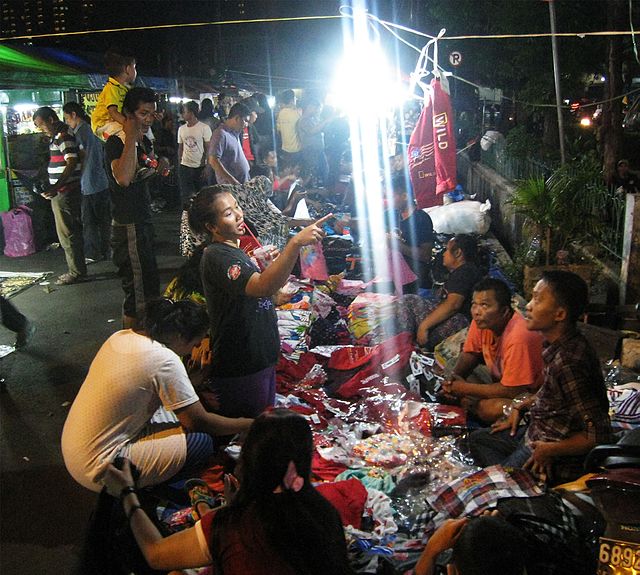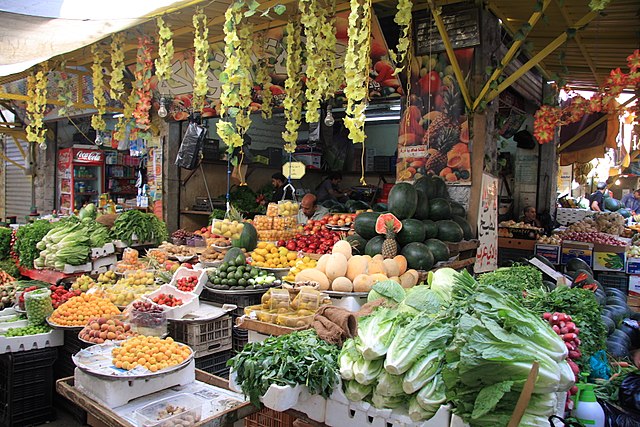In the social sciences, bargaining or haggling is a type of negotiation in which the buyer and seller of a good or service debate the price or nature of a transaction. If the bargaining produces agreement on terms, the transaction takes place. It is often commonplace in poorer countries, or poorer localities within any specific country. Haggling can mostly be seen within street markets worldwide, wherein there remains no guarantee of the origin and authenticity of available products. Many people attribute it as a skill, but there remains no guarantee that the price put forth by the buyer would be acknowledged by the seller, resulting in losses of profit and even turnover in some cases. A growth in the country's GDP Per Capita Income is bound to reduce both the ill-effects of bargaining and the unscrupulous practices undertaken by vendors at street markets.
People bargaining in a traditional Indonesian pasar malam (night market) in Rawasari, Central Jakarta.
Dongxiangs bargaining for sheep in China's Gansu province.
Spice market Djerba, Tunisia.
Medina Tripoli, Libya
A bazaar or souk is a marketplace consisting of multiple small stalls or shops, especially in the Middle East, the Balkans, North Africa and South Asia. However, temporary open markets elsewhere, such as in the West, might also designate themselves as bazaars. The ones in the Middle East were traditionally located in vaulted or covered streets that had doors on each end and served as a city's central marketplace. Street markets are the European and North American equivalents.
The Grand Bazaar in Istanbul, Turkey
Souk in Amman, Jordan
The Deira Souks in Dubai, United Arab Emirates
Shuk Mahane Yehuda, a popular shuk in Jerusalem, often simply called the Shuk (Hebrew: השוק, romanized: ha-Šūq)








